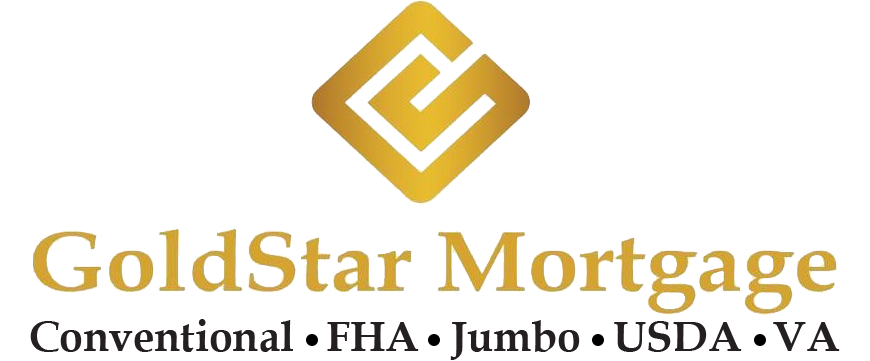What it Takes to Buy a Home

Buying a home has long been considered a cornerstone of the American dream. Whether it's your first, or one of many, getting a home loan to purchase a home is one of the most significant financial decisions you’ll make in your life. Many people decide to buy because of the benefits associated with home ownership.
- Asset Appreciation: Homes typically increase in value, which builds equity that can create long-term wealth.
- Tax Deductions: Some housing-related expenses are tax deductible. It’s important to discuss any potential deductions with a licensed a tax professional.
- Invest for the Future: You can make your money work for you by investing in real estate that can potentially be sold for a financial gain.
- Security: Buying a home may provide for greater stability than renting. Housing expenses are usually predictable when you have a fixed interest rate home loan; whereas living in rental property can be unstable due to unexpected increases. Furthermore, renting does not provide the ability for real estate appreciation.
- Pride in Home Ownership: Owning a home allows a buyer to settle into a community and establish long-term ties in a designated area.
- Greater Privacy: Home ownership gives an increased sense of control over the space where you reside.
- If you want to make that first step toward home ownership, there are several ways to obtain a home loan. It may take time to understand the different home loans and which one is right for your financial situation; that’s why it’s important to work with a licensed loan professional who can walk you through your various options.
Types of Home Loans
30 Year Fixed Rate Mortgage – Offers steady monthly payments over a 30 year term, more affordable payments as compared to mortgages with shorter terms.
15 Year Fixed Rate Mortgage – Lets you pay off your home loan faster and reduce your interest payments over the life of the loan.
VA Loan – Offers long-term financing to eligible veterans, and is guaranteed by the U.S. Department of Veterans Affairs (VA). It can be obtained without a down payment and doesn’t require private mortgage insurance (but does require payment of a guarantee fee).
FHA Loan – Insured by the Federal Housing Administration (FHA), this loan gives the flexibility of buying a home with a lower down payment and credit score.
Conventional Loan – Down payments as low as 3%. These loans have fewer restrictions than government-guaranteed loans. Conventional loans offer more flexible terms and program benefits.
Adjustable Rate Mortgage – A loan with an interest rate that changes. There is an initial period where the rate is fixed, after which, the interest rate adjusts according to the market and loan terms.
Jumbo Loan – Exceeds the loan limit set by Freddie Mac and Fannie Mae. Typically, in most counties the Jumbo Loan limit is $453,100 but in some areas due to higher home prices, that limit is $679,650.
USDA Loan – No down payments required and credit qualification is more flexible than other loan types
Home Improvement – A loan that’s used for home renovation or to buy a fixer-upper.
Reverse Mortgage – A loan for homeowners who are 62 years or older, enabling them to convert a portion of their home’s equity into cash. This loan can also be used to purchase a home.
Interest-Only Loan – A borrower makes monthly interest only payments due on a mortgage for a preset term, which is usually between 5 to 10 years.
I CAN Mortgage – This loan allows you to customize your loan term from 8 to 30 years.
Non-QM Loan - Obtain a loan using alternative methods of income verification.
How much home can I afford?
Turning the dream of home ownership into a reality requires preparation. Part of that preparation is finding out how much house you can afford to buy. The Affordability Calculator helps you determine just that. By analyzing your income, monthly debt, and the terms of your mortgage, it helps you identify the amount you can afford to invest into a new home. Determining what you can afford and getting pre-approved are important first steps in beginning your housing search.
How much should I expect to pay monthly?
With our easy Mortgage Payment Calculator you can also estimate your monthly mortgage payment beforehand. A standard rule is that your monthly mortgage payment, which includes principal, interest, taxes, and insurance, should not take up more than 28% of your income before taxes. This debt-to-income ratio is known as the “housing ratio.”
Our Loan Officers are licensed and ready to help you find the right home loan that fits your situation. We are authorized to offer a wide selection of purchase loans that you may not find elsewhere, contact us today for a no-cost consultation. Whether you need help with real estate investing or loans for first time home buyers, we'll get to know your personal situation to help you meet your goals.
When is the right time to buy a house?
Evaluate some things before you begin the process of purchasing a house:
Check your financial situation: you need to be certain about your income and have a decent amount of money to use towards your down payment. Choosing to buy a house before you’re ready can spell disaster.
Think about the market: you should be on the lookout for a home that will likely increase in value over time.
Consider your life stage: If you might be moving in a year or two, buying a house right now is probably not in your best interest. You should plan to be in your new home for at least the next five to seven years given the expenses related to buying a home.
Step 1 in Buying a House
Getting preapproved for a home loan is vital. Overall, cash buyers, who used to offer considerable confidence to sellers, are scarcer than they used to be. Without having loads of cash to put down, having a preapproval letter can be the next best thing.
A preapproval is a letter from a lender which shows how much of a loan you could qualify for once the lender looks over your credit report and credit score. This preapproval letter can mean the difference between you and other buyers interested in the same property. A letter can also help you find a mortgage lender willing to work to help you obtain a home loan with an interest rate best suited to your needs.

